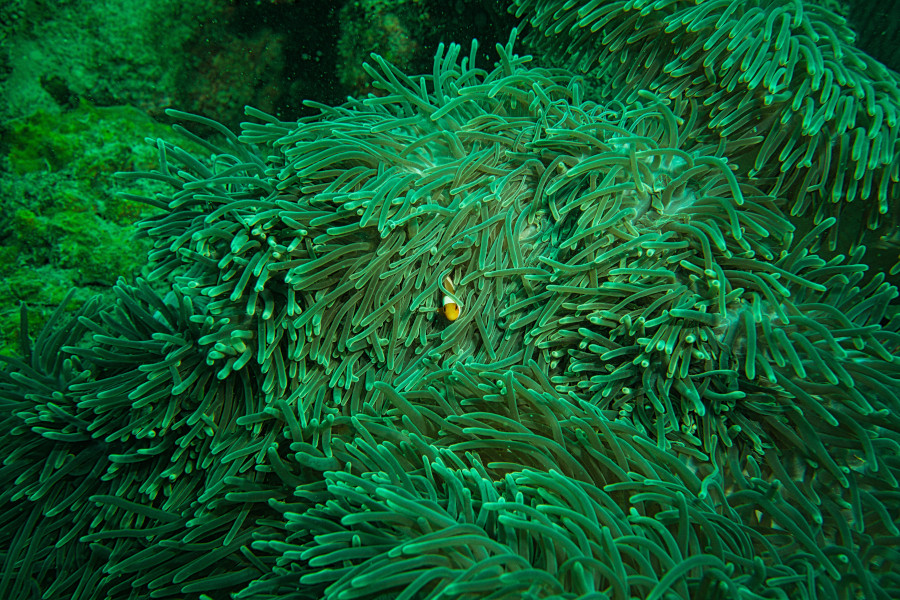
Upcycling – Lignin as Part of the Circular Economy
November 2, 2023
Lignovations Shortlisted for C&T ALLE Awards
November 14, 2023Using sunscreen is an essential part of protecting our skin from harmful UV rays, preventing skin cancer, and avoiding premature aging and sunspots. Sunscreen has come a long way since its introduction, and understanding its evolution can help us make informed choices about the products we use today. There are many sunscreen myths and the jungle of the different UV filters can be highly confusing. Synthetic vs. Natural, organic vs. mineral, … – this article aims to give an overview of what all of this means.
The History of Sunscreen
The concept of sunscreen dates back to ancient civilizations. Egyptians used extracts from rice, jasmine, and lupine plants to create sun protection potions. Greeks used olive oil for sun protection and aftercare. In 1801 Johan Wilhelm Ritter in Germany first discovered UV radiation. In the 1930s, the first commercial sunscreen was introduced, which contained natural ingredients like cocoa butter and coconut oil. However, it wasn’t until the 1940s that modern sunscreen as we know it was developed.
Chemist Benjamin Green invented a sunscreen that used a mixture of red veterinary petrolatum and cocoa butter to protect the skin from UV rays. Since then, sunscreen formulations have continued to improve, offering better protection and a wider range of options.
Today, sunscreen is an essential part of our daily routine, especially during periods of prolonged sun exposure. We now have access to a variety of sunscreen products, including those with synthetic and natural filters. Understanding the differences between these options is crucial for making an informed decision about the type of sunscreen that suits our needs.
Synthetic vs Natural Sunscreen Filters – What It Actually Means
Sunscreen filters can be categorized into two main types: mineral sunscreens and organic chemical sunscreens. Mineral sunscreens use active ingredients like titanium dioxide and zinc oxide, which physically block and reflect UV rays. This physical blockage is also the reason for the white stains these UV filters leave on your skin. Organic chemical sunscreens contain chemical compounds like Avobenzone, Tinosorb S/M, Uvinol, which absorb UV radiation and convert it into less harmful forms of energy.
The term „organic“ in organic chemical sunscreens does not refer to the natural or organic origin of the ingredients. In the context of sunscreens, „organic“ simply means that the chemicals contain carbon atoms. It is important to note that the use of organic chemical sunscreens does not imply that they are harmful or unsafe. These compounds have undergone extensive testing and have been approved by regulatory bodies for safe use in sunscreens. However, some organic filters are suspected to be problematic.
While mineral sunscreens are generally considered safe, they can sometimes present issues. Some mineral sunscreen formulations leave a visible white cast on the skin, which can be frustrating for some individuals. Additionally, mineral sunscreens can be thicker and harder to spread evenly, requiring more effort during application. However, advancements in formulation have led to the development of mineral sunscreens with improved texture and reduced white cast.
Why Alternative Ingredients for Sunscreen Matter
Every year, a significant amount of sunscreen enters the oceans, causing damage to marine ecosystems. Certain sunscreen ingredients, such as oxybenzone and octinoxate, have been found to contribute to coral bleaching, harming reefs and other marine life. To combat this issue, some countries have taken action by banning the use of these harmful ingredients in sunscreens. For instance, in 2021, the state of Hawaii in the United States implemented a ban on the sale of sunscreens containing oxybenzone and octinoxate. Other places like Mexico, Aruba island, Bonaire, and Palau have also implemented similar bans to protect their coral reefs.
In addition to environmental concerns, there are also personal safety and health risks associated with certain sunscreen filters. Some studies suggest that certain chemical sunscreen ingredients, such as benzophenone-3 and octocrylene, may have potential health risks, including generating free radicals, causing allergic reactions and hormone disruption especially in women influencing their cycles and increasing the risk of uterine fibroids and endometriosis. These concerns have led to regulatory actions and increased scrutiny of these ingredients in different regions.

New Additions to the Sunscreen Market
Since the demand for “new” types of sunscreen is high, the sunscreen market continues to evolve. Modern filters are introduced to the market, offering enhanced protection and improved aesthetics. Filters like Tinosorb S, Tinosorb M, Tinosorb A2B, Uvinol T150, and Uvinul A Plus have gained popularity in recent years. These filters provide broad-spectrum protection, are photostable, and offer improved UVA protection compared to traditional filters. They also tend to have a lighter texture and are less likely to leave a white cast on the skin.
Sunscreen boosted by Lignovations’ LignoGuard®
Another new addition to the sunscreen market is lignin. Lignin’s special functionalities include UV protection, antioxidative properties and provision of stability for the plant (and products). Lignin’s natural color being beige/brownish helps reduce titanium dioxide or zinc oxide and replace part of it with its color. This makes it easier to apply and leaves no white cast on the skin, which means it is also easier applicable for darker skin tones.
In terms of sustainability lignin can shine with its upcycled nature. Being considered a „byproduct“ of the pulp and paper industry, lignin often just is wasted or burnt for energy production. However, Lignovations takes lignin extracted from wood residues and gives it a second life as a cosmetic ingredient protecting people and products.
Are you interested in a lignin-boosted sunscreen?
If you are interested in buying a lignin-boosted sunscreen, please sign up for this email list and we will send to you the products, that are already on the market. There is enough lignin for everyone.



